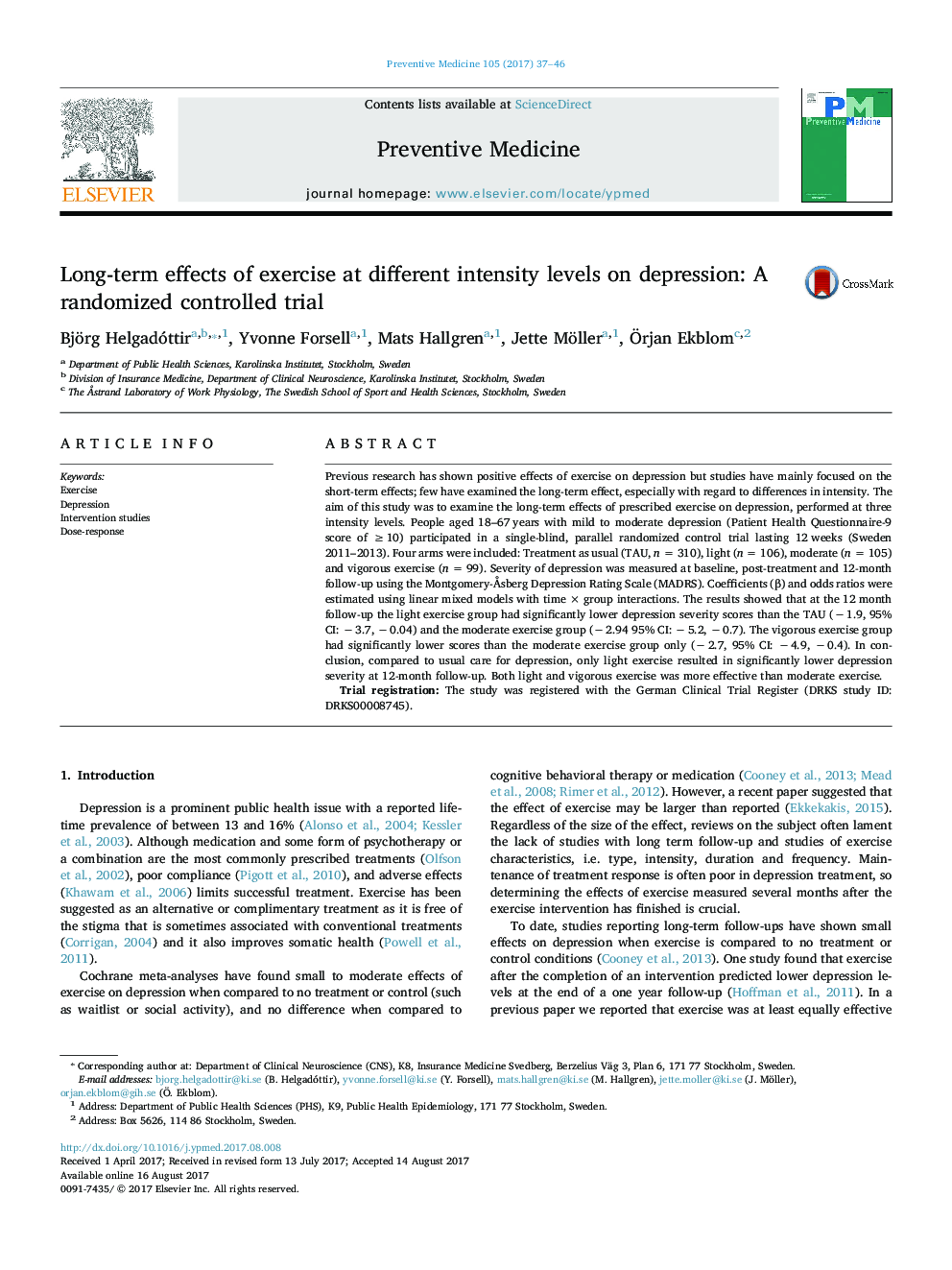| Article ID | Journal | Published Year | Pages | File Type |
|---|---|---|---|---|
| 5635457 | Preventive Medicine | 2017 | 10 Pages |
â¢Research into the long-term effects of exercise intensity on depression is scarce.â¢Light, moderate and vigorous exercise was compared to treatment as usual (TAU).â¢Light exercise led to lower depression severity than TAU at 12 month follow-up.â¢Light and vigorous exercise resulted in lower depression severity than moderate exercise.
Previous research has shown positive effects of exercise on depression but studies have mainly focused on the short-term effects; few have examined the long-term effect, especially with regard to differences in intensity. The aim of this study was to examine the long-term effects of prescribed exercise on depression, performed at three intensity levels. People aged 18-67 years with mild to moderate depression (Patient Health Questionnaire-9 score of â¥Â 10) participated in a single-blind, parallel randomized control trial lasting 12 weeks (Sweden 2011-2013). Four arms were included: Treatment as usual (TAU, n = 310), light (n = 106), moderate (n = 105) and vigorous exercise (n = 99). Severity of depression was measured at baseline, post-treatment and 12-month follow-up using the Montgomery-à sberg Depression Rating Scale (MADRS). Coefficients (β) and odds ratios were estimated using linear mixed models with time Ã group interactions. The results showed that at the 12 month follow-up the light exercise group had significantly lower depression severity scores than the TAU (â 1.9, 95% CI: â 3.7, â 0.04) and the moderate exercise group (â 2.94 95% CI: â 5.2, â 0.7). The vigorous exercise group had significantly lower scores than the moderate exercise group only (â 2.7, 95% CI: â 4.9, â 0.4). In conclusion, compared to usual care for depression, only light exercise resulted in significantly lower depression severity at 12-month follow-up. Both light and vigorous exercise was more effective than moderate exercise.Trial registration: The study was registered with the German Clinical Trial Register (DRKS study ID: DRKS00008745).
